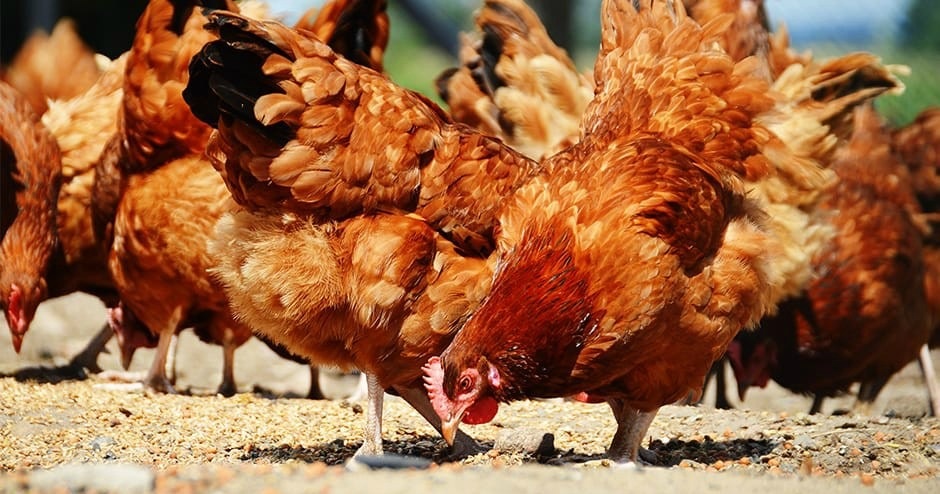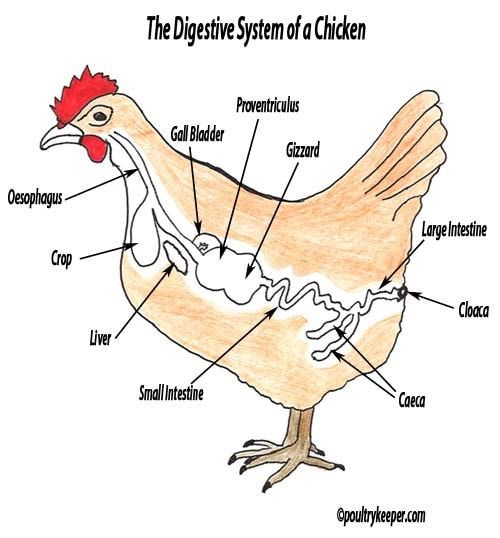How much do you have to feed a chicken daily
Posted by Chickenstricken on Nov 26th 2019
Chicken Food
In regards to keeping Chickens
and feeding them the general writings out there contain advice to the
extent of something like this “each Chicken should have access to the
daily needed intake of food and water in sufficient quantity and
quality.” Great. That’s a no-brainer if you want to keep any kind of
pet. But what does that really mean? What does a Chicken need and want
in food?
Well, the want is easy, as Chickens are as much junk
food addicts as you and I (and my cats for that matter).

Throw your hens a cup of balanced food pellets that include all their daily needs for vitamins, minerals and proteins, and then toss a handful of sunflower seeds the other direction. See what they go for first….
Matter of
fact, try it with the Roosters first and see which pile of food scores
them more girls. It doesn’t matter if they cluck like Adam Levine or do
the Jaggernaut Dance like Mick Jagger, if they’re stuck with the
healthy food pile the hen party will go elsewhere ! Yet if you gave
them sunflower seeds alone on a regular basis their feather butts would
rather quickly change into some fatty butts, let alone some rather
vitamin and mineral deficient ones. Yes, in case you did not know,
Chickens can get fat, they can even get fatty liver and die from it just
like an obese Human being. -
If you want to feed your Chickens
an appropriate diet then you have to familiarize yourself at least with
the basic anatomy of a Chicken and its natural feeding behaviors!
Chickens are very special, at least if you consider their digestive
system. For most living things digesting food starts with chewing it,
which is something missing completely in Chickens. The teeth that is.
Meaning digestion of food does not start in the beak. This anatomical
“error” was corrected by mother nature by creating a crop and gizzard.
The food that is eaten, which Chickens choose based on optics by the
way, as they can only smell and taste very little, so is it a wonder
that little red Henny Penny is going straight for your lovely bright
flowers that you so diligently planted right beside the house? The food
is then moved down the esophagus until it lands in the crop. Here it is
stored and softened by the drinking water until the Chicken digests it
at her leisure. The food still hasn’t been chewed, though.
That
happens a little farther down the line in the gizzard, a muscular organ
that acts as the Chickens’ teeth to grind the food and mix it with
digestive juices, helped along by several small stones (grit) that have
been stored inside the gizzard, ever since the Chicken instinctively ate
them earlier.

The final “chemical digestion” and with it absorption of the nutrients is then completed in the small intestine, similar to all other mammals. However, Chickens don’t form lactose, so to add any kind of milk product or lactose to their diet is useless!
Another little tidbit of information: Chickens do not urinate, they don’t even have a bladder. Urates produced by the Chickens’ kidneys are simply added to the digested food waste at the end of the digestive system, at the vent. Both are then dumped together (exactly, only one way out here people) which is why normal Chicken poop contains white urates which are mixed in with all the other brown, green and darker looking digested material.
Quite frankly, I never wondered about the color as much as how the Chickens inevitably find THE one spot to "unload", like my front door mat or the one spot I need to step to get into my car.
So How Much Food Should My Chicken Eat?
The average hen will eat around ½ cup of feed per day. In addition to their feed you should try to limit treats to about 10% of their daily intake. Stick to those guidelines and your flock will be happy and healthy, rewarding you with lots of fresh eggs.

